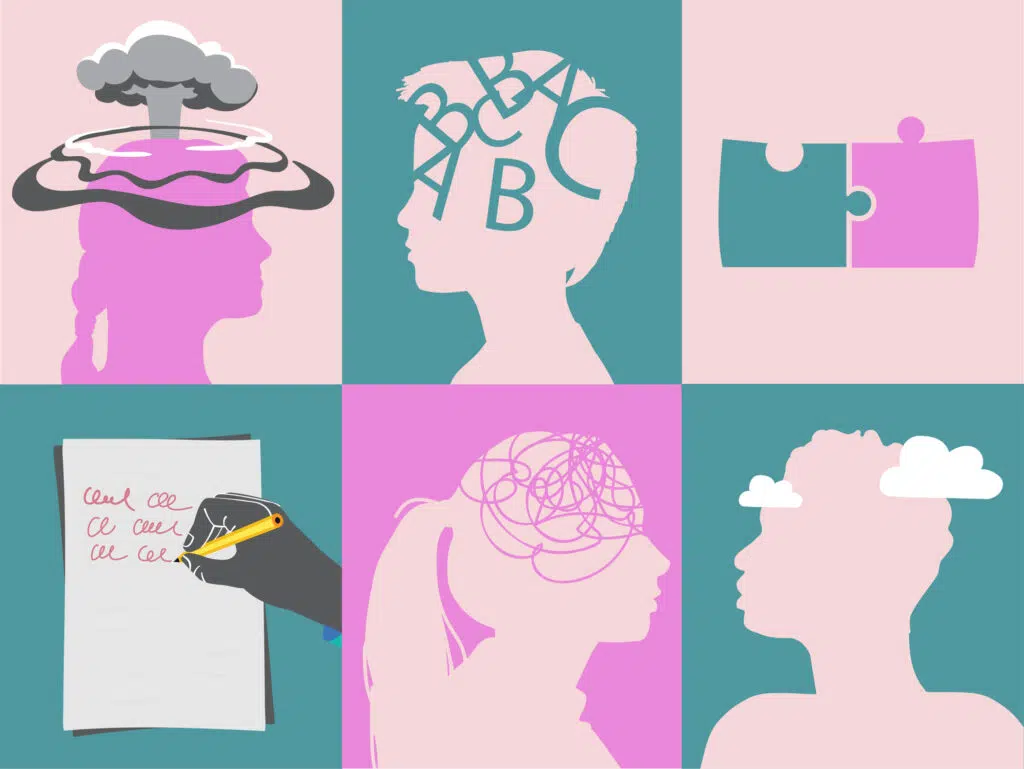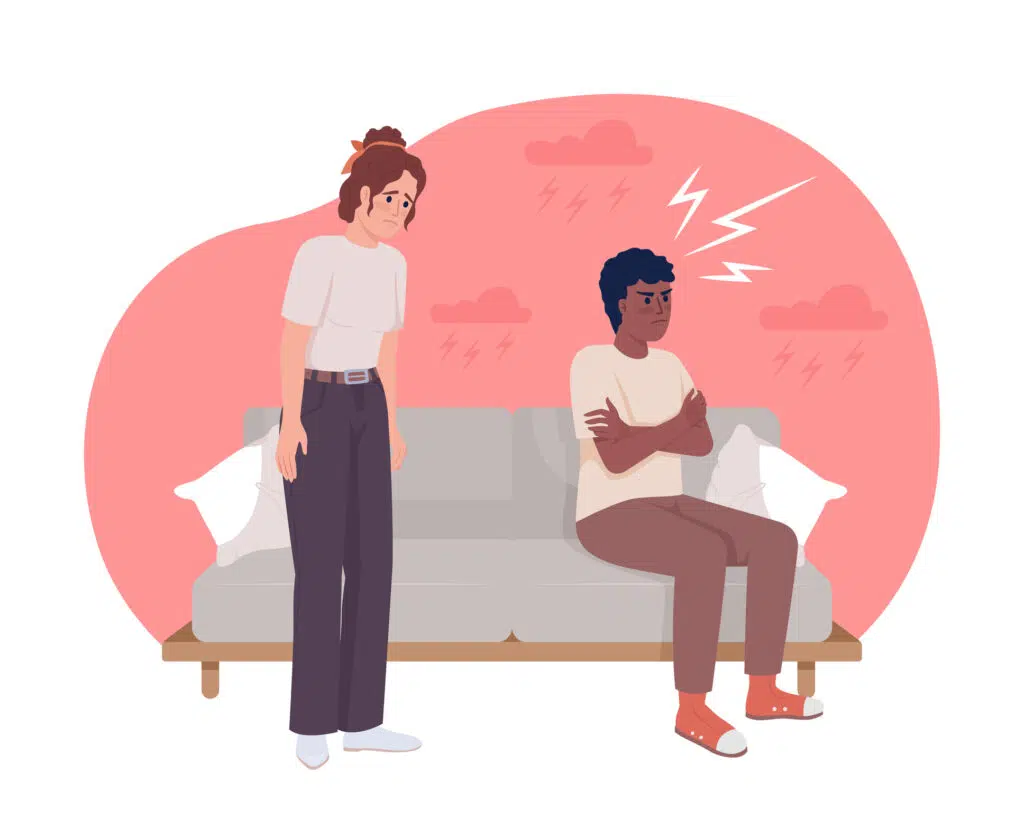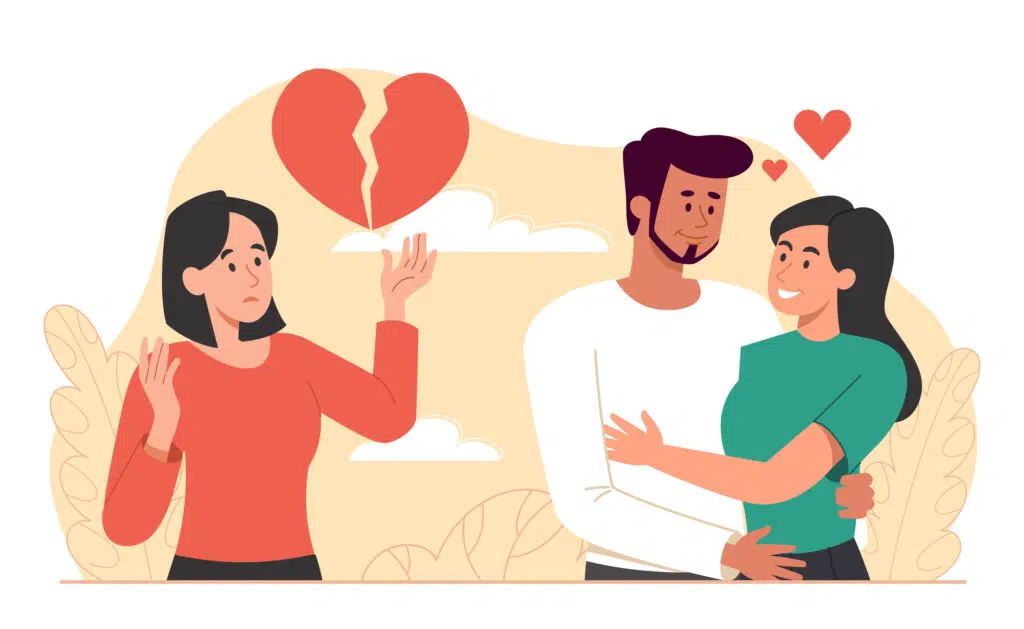Living With ADHD: 9 Common ADHD Struggles

Living with ADHD can bring unique challenges to all aspects of life. ADHD in adults can look very different from children. ADHD symptoms involve more than losing focus. By understanding ADHD and the common struggles that come with it, you can start to figure out how ADHD impacts your life and what to do about it.
What Is ADHD?
ADHD stands for attention deficit hyperactivity disorder. While many think of ADHD as a childhood condition, it can affect adults too. Typically, ADHD is diagnosed in childhood, but some individuals may not get diagnosed until much later in their adult life. ADHD symptoms are categorized into subtypes:
- Hyperactivity and impulsiveness
- Inattentiveness (difficulty focusing and paying attention)
- Combined
Adult ADHD symptoms include:
- Forgetfulness
- Lack of attention to detail
- Restlessness
- Impulsiveness
- Disorganization
- Poor time management
ADHD can look different depending on the individual. Another warning sign that you may have adult ADHD is experiencing sudden bursts of anger, as people with ADHD often struggle to regulate their emotions. Remember that ADHD is complex and that ADHD often goes undiagnosed in adults as it can present slightly differently.
9 Common Struggles For People With ADHD
ADHD can be completely debilitating and significantly affect quality of life. It’s commonly associated with many co-existing conditions in adults. Adults with ADHD are three times as likely to have depression, and around 10-20% of people with bipolar disorder also have ADHD. Here are nine common ADHD struggles.
- Time Management And Disorganization
A common challenge with ADHD is disorganization. People with ADHD tend to be ‘time blind.’ This refers to how someone perceives the passing of time. As a result, a person with ADHD may always be late or too early to avoid being late. Problems with time management and disorganization are common in adults with ADHD, such as difficulty keeping track of tasks or prioritizing tasks in a way that makes sense.
- Work/Life Balance
Work/life balance is a problem that many people face, but for someone with ADHD, it’s often harder to create balance. Difficulty focusing, self-regulation, time management issues, and balancing home life can make it hard to navigate daily stressors. It can be tough for someone with ADHD to slow down and focus on one activity at a time.
- Difficulty Focusing
One of the primary symptoms of ADHD is difficulty focusing. Those with ADHD are easily distracted and struggle to focus on the task. Research suggests that the reason for this is down to brain chemistry. Scientists have found differences in the brain’s structure and chemistry in people with ADHD.
- Forgetfulness
Losing things, missing dates and appointments, and forgetting what someone said immediately following the conversation. These all tend to be common in people with ADHD. In general, ADHD is associated with short-term memory problems. Forgetfulness in ADHD can impact your school, work, and personal life as you can have issues remembering assignments or even paying a bill.
- Procrastination
Procrastination is a type of avoidance behavior. A common difficulty in adults with ADHD is putting off tasks. Often, procrastination can lead to low mood, and the failure to complete the task can result in guilt and shame. Procrastination in ADHD can create a negative circle that majorly impacts self-esteem and the ability to complete tasks.
- Impulsivity
In a clinical sense, impulsivity is doing something without thinking about the consequences. Both hyperactive and inattentive subtypes of ADHD are prone to impulse control issues. It means that someone with ADHD could make rapid decisions without thinking about what could happen, whether the result is bad, good, or even dangerous.
- Low Self-Esteem
Evidence suggests that people with ADHD do tend to have lower self-esteem. If you have low self-esteem, you don’t think your thoughts or opinions have a lot of value. You could feel that you just aren’t good enough. Growing up with ADHD, diagnosed or not, you often hear negative feedback and criticism, which can result in low self-esteem.
- Sleep Problems
Experts repeatedly find that sleep problems are common in people with ADHD, but the precise reason is unclear. Some statistics show that four out of five adults with ADHD also have a sleep disorder. ADHD symptoms can make it difficult to fall asleep at night, and people with ADHD are prone to restless legs syndrome.
- Easily Bored
Some people with ADHD experience hyperfocus, where they become completely engrossed in a task to the point where they block out the world. However, this type of focus is usually associated with a task that excites or interests them. Adults with ADHD can become easily bored when the task is considered boring. For instance, returning emails and calls, booking appointments, and paying bills can slip through the cracks.
Strategies And Tools For Improving Concentration And Managing Distractions
While living with ADHD does create unique challenges, it’s essential to figure out what works for you. Strategies for building focus and managing distractions involve looking after your well-being and time management tricks.
Managing ADHD symptoms is essential in supporting a healthier and happier life with meaningful relationships, emotional health, and career opportunities. Part of ADHD treatment typically focuses on your daily life and sticking to specific methods to boost your well-being, such as:
- Regular exercise
- Limit screen time
- Create and stick to a daily routine
- Declutter and minimize distractions
- Respect and set your own boundaries
In a professional and personal setting, you can use tools to manage your time, like:
- Set reminders to take your medication
- Use noise-canceling headphones for busy environments
- Keep your desk clean
- Break down big tasks into smaller, manageable tasks
- Set phone reminders for appointments and meetings
- Set a routine for paying bills and checking mail
ADHD Treatment Options: Therapy And Medication
It’s important to seek treatment for ADHD because when ADHD goes untreated, it can negatively impact all areas of your life. People with undiagnosed ADHD can think they are just “lazy,” but that’s really not the reality of the situation. This type of negative thinking can have a major impact on self-esteem.
Treatment for ADHD can involve therapy or medication, or both. Therapy for ADHD focuses on education and learning skills that you can apply to your life for success. Often, cognitive behavioral therapy is used for ADHD. Therapy could help you:
- Learn how to deal with your emotions or temper more effectively
- Understand ADHD and how it impacts your life
- Boost self-esteem
- Develop better time management and problem-solving skills
If necessary, ADHD treatment can include medication. Stimulants are the most common medication prescribed for ADHD. Not everyone with ADHD needs medication, but it can help some people focus longer and make ADHD symptoms much more manageable.
ADHD medications work by increasing certain neurotransmitters in the brain, helping to improve focus, reduce hyperactivity, and control impulsive behavior. Taking medication for ADHD is a personal choice. Speaking with a psychiatrist can help to give you a good understanding of your options and how medication and therapy work for ADHD treatment.
If you’re struggling with ADHD, speaking to a mental health professional can help you to determine the best treatment plan. We offer psychiatry and therapy services for ADHD for those living throughout California and New York. Book an appointment online or contact us at our LA or NYC offices.

How to Move On After a Friendship Breakup
Friendship breakups can sting just as much as a romantic breakup. After all, you’re experiencing a loss of shared history and an understanding of each other that can leave you feeling lonely and isolated. Not all friendships are forever, but moving on from the loss of a friendship does take time and some self-compassion.

Signs You’re in a Toxic Relationship
A toxic relationship can chip away at your well-being and happiness. Toxic partners can be manipulative and charming, making it difficult to recognize the signs that you’re in a toxic relationship. You deserve to be in a supportive and healthy relationship.

10 Common Marriage Reconciliation Mistakes to Avoid After Infidelity
Infidelity can leave couples devastated. If you’ve been affected by infidelity and want to salvage your relationship, rebuild trust, or make a tough decision, keep reading for 10 common reconciliation mistakes to avoid after infidelity.

Survey: 72% of Americans are Stressing About the Upcoming Presidential Election
Political viewpoints in the U.S. have always been contentious, but is the impact of politics in the United States making it difficult for people to live their everyday lives? With some anticipating another brutal and long campaign season ahead of the upcoming 2024 presidential election, nearly half of Americans say politics is negatively impacting their mental health.




